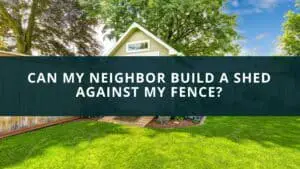If you’ve ever gone camping, you’ll appreciate the importance of campfires. Solo Stove fire pits offer an easy way for most people to start a fire while limiting the risk of getting out of hand. So, are solo stoves legal?
Solo stoves will be legal in any state or city that allows outdoor fire pits and campfires. Most areas allow this. High-density areas usually don’t, and some require you to get a permit in case of a campfire. You also need to know the local laws and whether you have access to the right kind of wood.
It’s important to be familiar with the acceptable standards before buying a solo stove. More importantly, you need to be careful and restrict use to the outdoors only. Here, we discuss whether solo stoves are legal.
Quick navigation
Rules on Outdoor Fires
The rules on starting outdoor fires differ greatly all over the country. Some states allow it, and some require a permit. But it goes beyond the state. There are usually local laws on it, and this is very crucial. In most cases, urban and high-density areas prevent outdoor fires. Here, we look at the rules in some states.
1. California
Solo stoves are legal in California. The Bureau of Land Management allows campfires. But there are restrictions. This generally includes all campfires with a diameter area of 5 feet cleared to bare soil and no flammable material overhead. Anyone starting a campfire should also have a round point shovel with at least 35 inches long handle.
Since Solo Stove is portable, it’s acceptable. But users will need to have a valid California campfire permit. You can get this online or from BLM, Cal Fire, and U.S. Forest Service offices. It’s also essential to carry fire extinguishers, water, and shovels.
In the cities, the laws are a bit different. But since fire pits are allowed, solo stoves are also acceptable. Each city has its restrictions to protect the environment and prevent fire. For example, the Bay Area Air Quality Management District provides that all wood heaters should limit their emissions to between 2.0 and 2.5 grams per hour of burning. Each municipality has its rules around burn bans.
2. New York
Solo stoves are illegal in New York City. The Fire Department has stated that portable outdoor fireplaces, fire pits, and patio hearths are illegal in the city. The ban is because they’re open fires. But it hasn’t stopped people from having this, even if it’s not advisable. Some people usually use solo stoves for barbecue.
However, this could change with the proposed legislation that’ll allow backyard fires in homes that are detached or semi-detached housing. These are residential areas in some parts of the Bronx, Staten Island, and Riverdale.
In other parts of the state, the law on open burning cold is less restrictive. The Department of Energy Conservation allows open burning in some cases. But there are still precautions you have to take. To know the status of a solo stove in your area, ask the local government, as they may have stricter rules than the state. This way, you can also be familiar with the local burning laws and comply with them.
3. Colorado
Solo stoves are legal in Colorado as long as they comply with the standards of EPA-certified wood heaters. The state allows some burning devices to be used indoors, but solo stoves aren’t for indoor use. Usually, burning outdoors is permissible in most cases as long as you meet the requirements. Where there could be an issue is burning inside the house. Even in Denver and Boulder, you can still burn wood and use solo stoves.
The state also has air quality Action Days and No Burning Days. You’ll need to check with your local government to see if using solo stoves or burning anything is permissible. In some areas, you’ll need a permit to progress.
4. Texas
Solo stoves are legal in Texas. The company behind the product is based in Southlake, Texas. The state has flexible laws on outdoor burning. There’s a general ban with exceptions, and some of these exceptions cover the use of solo stoves. Outdoor burning will be permissible solely for recreational or ceremonial purposes. Or when used exclusively to generate warmth or for noncommercial food preparation. In such cases, you won’t need a permit from the Texas Commission on Environmental Quality to use it.
Recreational fires also include campfires and are permissible if they don’t exceed 3 feet within a noncombustible burn ring. Fire pits that solo stoves mimic are also acceptable. But they should be at least 25 feet from any combustible item. You also have to use ordinary wood.
5. Massachusetts
The Commonwealth of Massachusetts allows open burning in most parts from mid-winter to early spring. But there’s a ban in the 22 densely populated cities and towns in the state. This includes Boston, Cambridge, Medford, Chelsea, Arlington, Somerville, Worcester, etc.
Even when permissible, from January 15 to May 1, it has to be done between 10:00 am and 4:00 pm. It should also be 75 feet from buildings. Of course, this law may not apply to solo stoves. Solo Stoves are more like fire pits, and each city has its rules. In Boston, any fire pit that uses solid fuel is illegal. Boston has a somewhat strict law when it comes to fire pits. But you’ll find that several other municipalities are quite lax.
What To Know Before Buying a Solo Stove?
If you’re planning to use a solo stove, there are certain things you should know. These include:
1. Local And State Laws
There are hundreds of laws on what’s acceptable for outdoor fires. They differ from one locality to another, and listing just five states won’t be enough. The state laws will mostly apply when you’re using parks and camping. But when it comes to using solo stoves in your backyard, you need to talk to your local authorities, so you’ll know what’s acceptable. These laws exist mostly for your protection. So, do well to comply because not doing so could attract fines.
2. Consider Fuel Supply
Solo stoves use wood. So, you need to make sure you’ll readily get wood before you go ahead and buy one. It has to be regular wood and not treated or lumber wood. So, make sure you have easy access to the supply. You also have to consider the emission rules relevant to your fuel type.
In Conclusion
It’s impossible to determine all the rules on outdoor burning devices, which will affect solo stoves. But for most states, it’s either permissible or requires a permit. Major cities are usually the only ones that may outlaw it.



